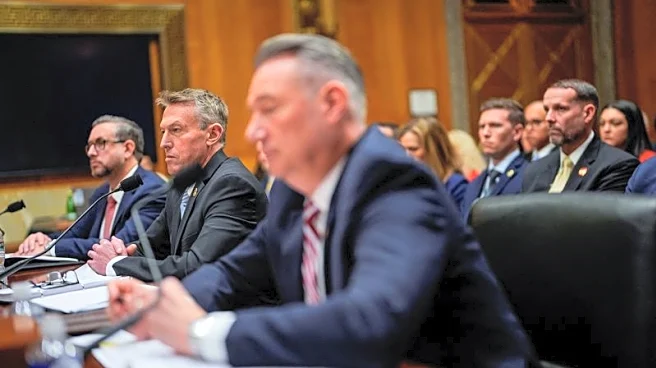What's Happening?
A church leadership team is facing challenges with a new member who may be experiencing memory issues, potentially related to dementia. This member, an older woman, is eager to participate in church activities
and often signs up for volunteer tasks. However, she frequently fails to fulfill these commitments, leaving other volunteers to cover her responsibilities. The church community, known for its loving and supportive environment, is seeking ways to address this issue compassionately. Suggestions include monitoring volunteer sign-ups to ensure coverage, pairing the member with a volunteer buddy for reminders and support, and having a nonjudgmental conversation to explore alternative volunteer roles that might better suit her capabilities.
Why It's Important?
This situation highlights the broader issue of how communities can inclusively support members with cognitive challenges. As the population ages, more organizations may encounter similar situations, necessitating thoughtful approaches to volunteer management and community involvement. Addressing these challenges with empathy and practical solutions can enhance community cohesion and ensure that all members feel valued and included. It also underscores the importance of creating systems that accommodate diverse needs, fostering an environment where everyone can contribute meaningfully.
What's Next?
The church leadership may implement the suggested strategies, such as assigning a volunteer buddy and adjusting volunteer roles, to better support the member in question. These actions could serve as a model for other organizations facing similar challenges. Additionally, the church might consider broader educational initiatives to raise awareness about dementia and cognitive health, promoting understanding and compassion within the community. This proactive approach could lead to more inclusive practices and policies that benefit all members.
Beyond the Headlines
This situation raises ethical considerations about how communities can balance compassion with practicality when dealing with members facing cognitive decline. It also prompts discussions about the role of volunteerism in fostering community engagement and the need for adaptive strategies to accommodate aging populations. Long-term, this could influence how organizations design volunteer programs and support systems, ensuring they are accessible and inclusive for individuals with varying abilities.











